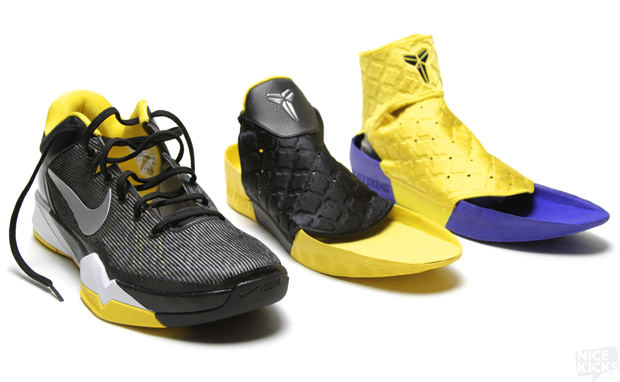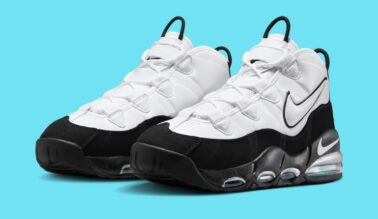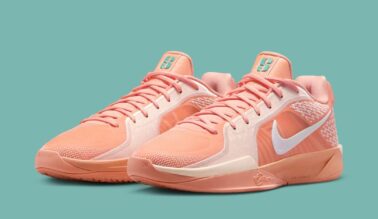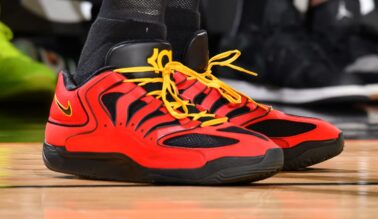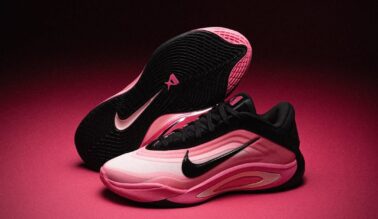This post may contain affiliate links. Please read our disclosure policy.
The Nike Zoom Kobe VII is undoubtedly the most worn shoe on court in the NBA. In our daily Kicks On Court feed, we spot at least one player on each team wearing either general released Kobe VIIs or iD versions daily. Why is this shoe so popular amongst NBA players? Is it simply the Kobe VII’s aesthetics that are so appealing or is Bryant’s seventh signature shoe that good performance-wise? Following last week’s Nike Zoom KD IV and Nike LeBron 9 performance reviews, we now present to you our Nike Zoom Kobe VII review. Is the Kobe VII one of your favorite performance models right now?
Stay tuned for our performance reviews on the Nike Basketball “Elite” Collection.
RELATED: Performance Review: Nike Zoom KD IV | Performance Review: Nike LeBron 9
Lockdown: Kobe’s seventh signature sneaker features a very snug, locked down fit that is, in my opinion, a step above last year’s Nike Zoom Kobe VI and a step below the Kobe V, my personal favorite from the Kobe line. That is why the Kobe VII does not have a perfect score in this section. This shoe isn’t bad, by any means, in regards to lockdown, it’s just the Kobe V is that good in this department. My foot felt more locked down when using the ‘Attack Fast’ insert. The power stretch forefoot strap insert provided a snugger fit for my foot, and I felt more resistance from that sleeve as opposed to the ‘Attack Strong’ sleeve. I was able to react faster and move quicker in this one, which I guess is one of the reasons why it’s referred to as the ‘Attack Fast’ insert. In some instances when playing in the ‘Attack Strong’ insert, I felt as if the sleeve was just there and served no purpose lockdown-wise.
Traction: Traction is one of the Kobe VII’s best traits because of the purposeful use of the solid rubber herringbone on the outsole. If you recall, Nike incorporated herringbone on the Nike Zoom Kobe IV as well, and that was the best of the four low tops in regards to traction in my opinion. On the VII, herringbone is specifically placed on the medial side of the outsole, which provides extreme grip on the area you need it most. The instep or medial side of the shoe is used regularly in the game of basketball, whether you are exploding from a first step or quickly changing directions while defending or cutting to the basket; therefore, having the solid rubber herringbone on this area is very advantageous. Kobe Bryant has some of the best footwork in the game today, so herringbone on the medial side is undoubtedly beneficial to that part of his game. As for the rest of the outsole, the Kobe VII features a triangular pattern that also grips to the court really well.
Cushioning: The ‘Attack Fast’ insert was my favorite to play in, but each insert had strengths and weaknesses throughout my time in the Nike Zoom Kobe VII. As stated earlier, the ‘Attack Fast’ insert? featured more of a locked down feel, but I liked the ‘Attack Strong’ from a cushioning standpoint. The ‘Attack Strong’ insert’s cushioning is softer, plusher and more comfortable than the ‘Attack Fast’ insert’s cushioning. Initially, I was more into the ‘Attack Fast’ insert (10 millimeter Zoom unit in the heel and full-length Zoom in the forefoot) because my initial wears in the ‘Attack Strong’ were not as comfortable as I expected, but after a few wears in the ‘Attack Strong’, it became more comfortable thanks to the Cushlon foam. As with other Cushlon-laced sneakers that I have tested (Nike LeBron 9, Jordan CP3.V), the foam gets softer, the longer you play in it.
Responsiveness: If you’re looking for a super responsive feel, I would go with the ‘Attack Fast’ insert. The bottom loaded Zoom unit in the heel is very reactive when returning to the floor. As stated earlier, the ‘Attack Strong’ is more of an impact protected cushioning.
Support: Can a shoe be too supportive? The Nike Zoom Kobe VII features a large glass based carbon fiber shank, which really keeps the foot intact yet provides a nice range of motion for the forefoot. Still, the Kobe VII is not as flexible as its predecessors, namely the Kobe V. It didn’t give my foot the oneness and mobility that Kobe’s fifth signature possessed. Also, the TPU heel clip didn’t hug the back of my foot like I thought it would. Overall, it is an extremely supportive shoe, but I would have liked it to be a more flexible wear.
Breathability: There aren’t too many perforations on the Kobe VII’s construction, but the breathability factor of this shoe wasn’t bad at all. Of course, additional ventilation would have been great, but there were no complaints in this area.
Durability: The Kobe VII is arguably the most durable of the Kobe low tops. This time around, Nike placed a cast urethane material over the top of the Flywire cables and flexible mesh, giving this shoe a pretty tough outer shell. While it may not resonate aesthetically with consumers as well as the?polyurethane snakeskin-like scales on the Kobe VI, the Kobe VII’s outer shell is sturdier and can take more of a beating without showing as many marks.
Now, the ‘Attack Strong’ and ‘Attack Fast’ inserts are a totally different story when it comes to durability. In the midst of constantly inserting and swapping the soles, they started to peel and tear in some areas, specifically on the forefoot area and heel.
Overall: Out of the three signature Nike silhouettes (Zoom KD IV, LeBron 9, Kobe VII), Kobe’s seventh signature shoe features the best package of support, durability and traction. Each has its flaws, but the Kobe System is yet another stylish, performance-ready low top that builds on the success of its predecessors. By no means is it the best sneaker from the Kobe line, but it has characteristics that are definitely advantageous on the court. The Nike Zoom Kobe VII Supreme System is now available at select retailers for $180. However, the regular Nike Zoom Kobe VII is available in multiple colorways for $140.
Click the next page to view detailed photos of the Kobe System.
